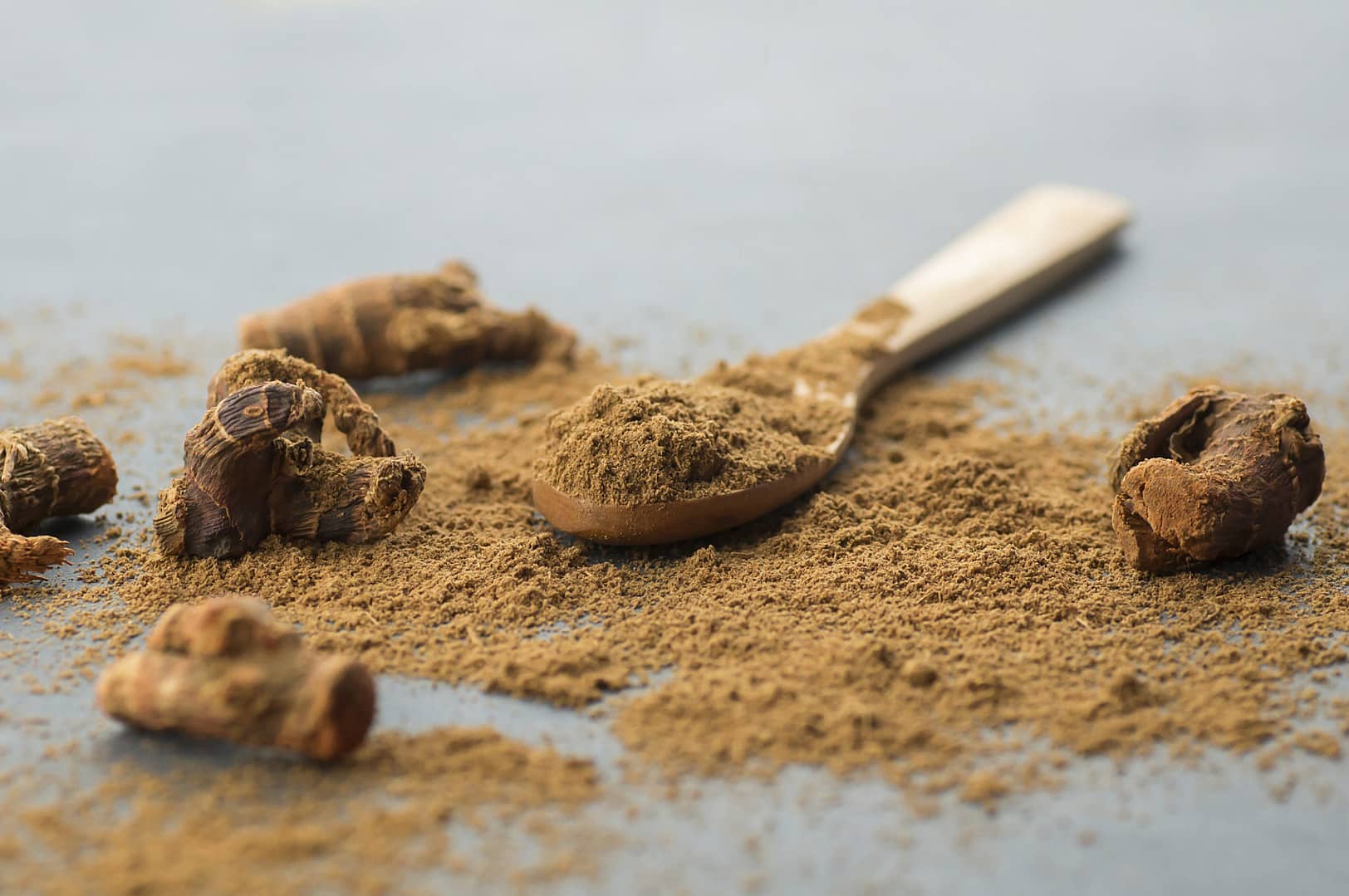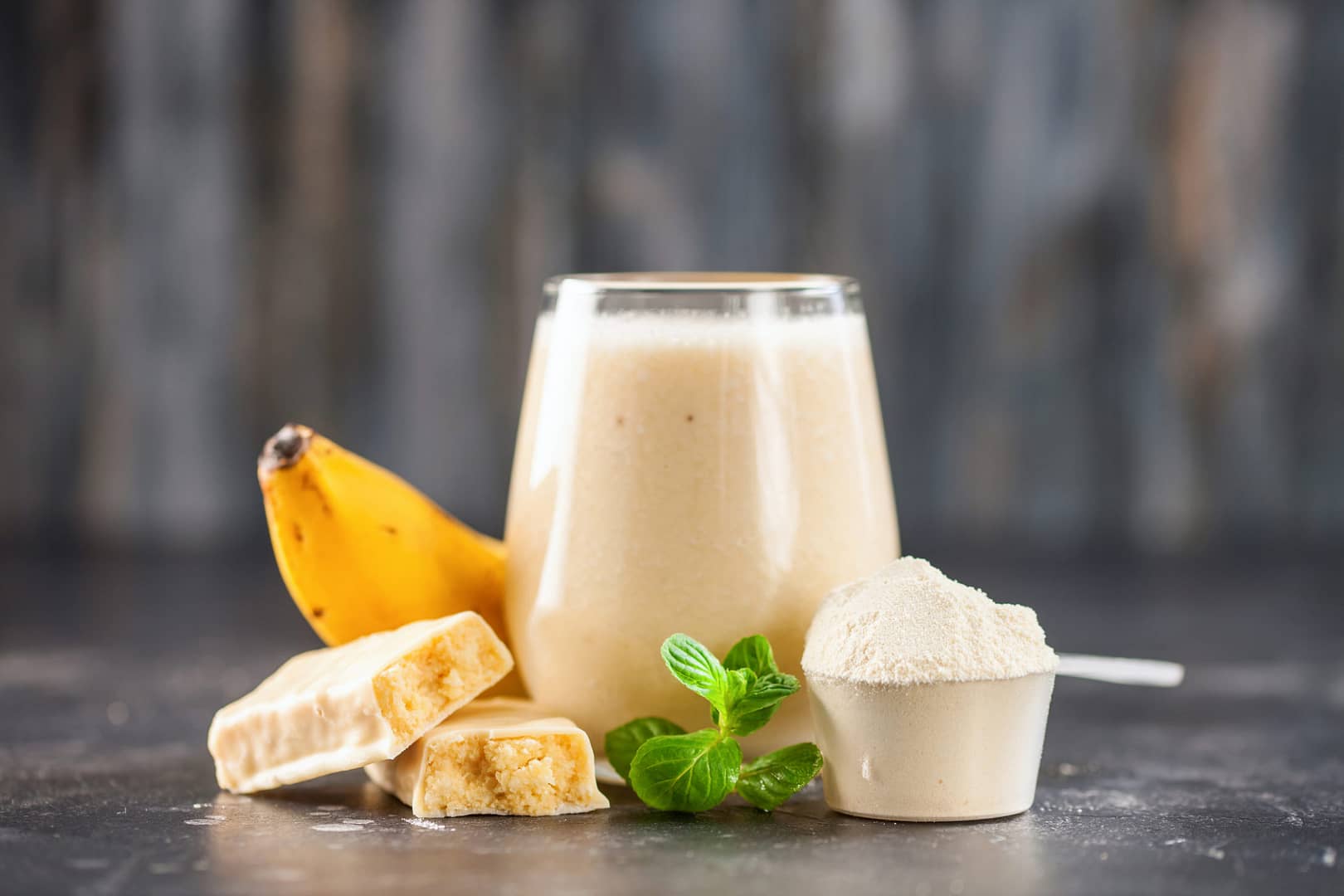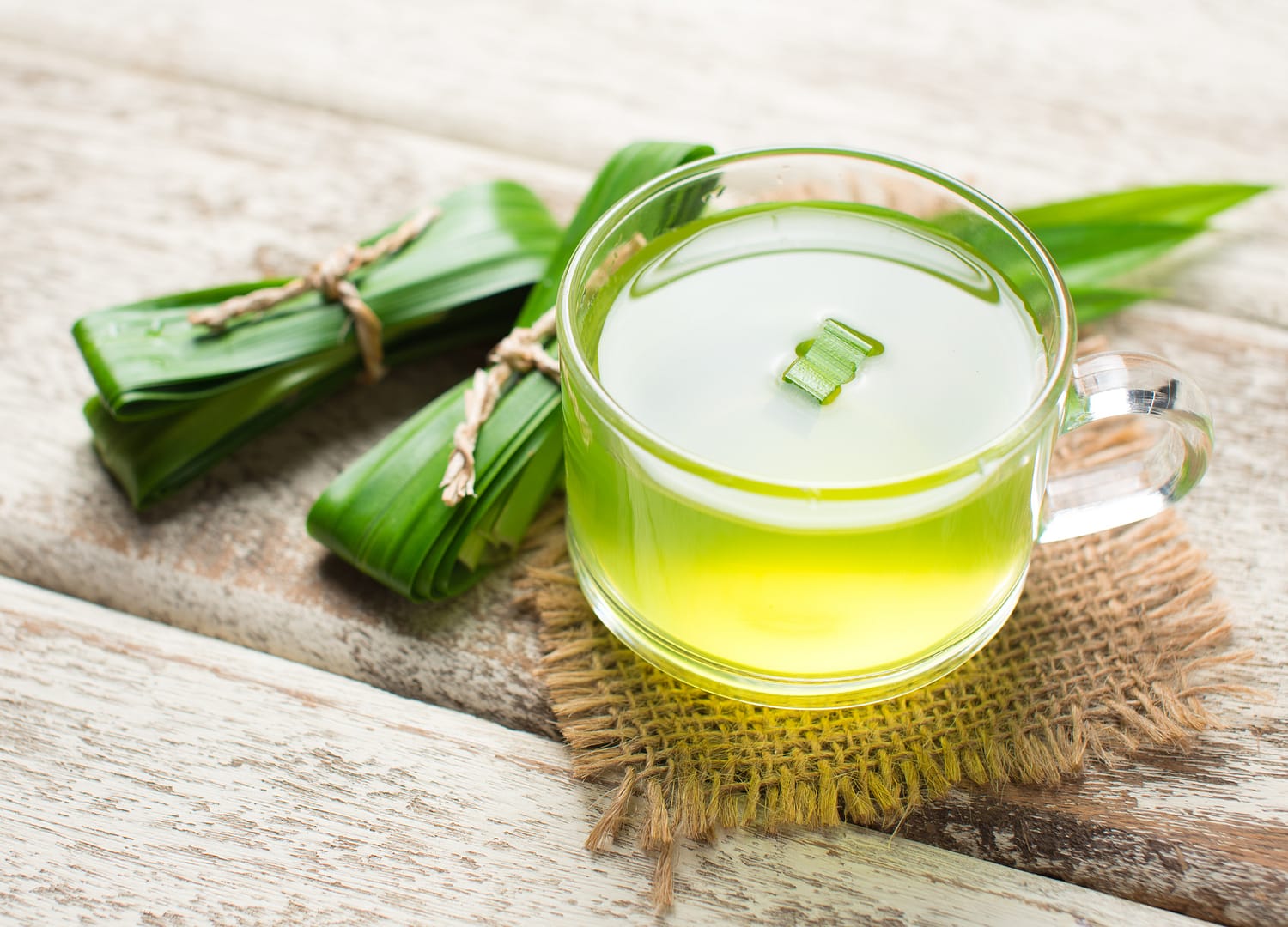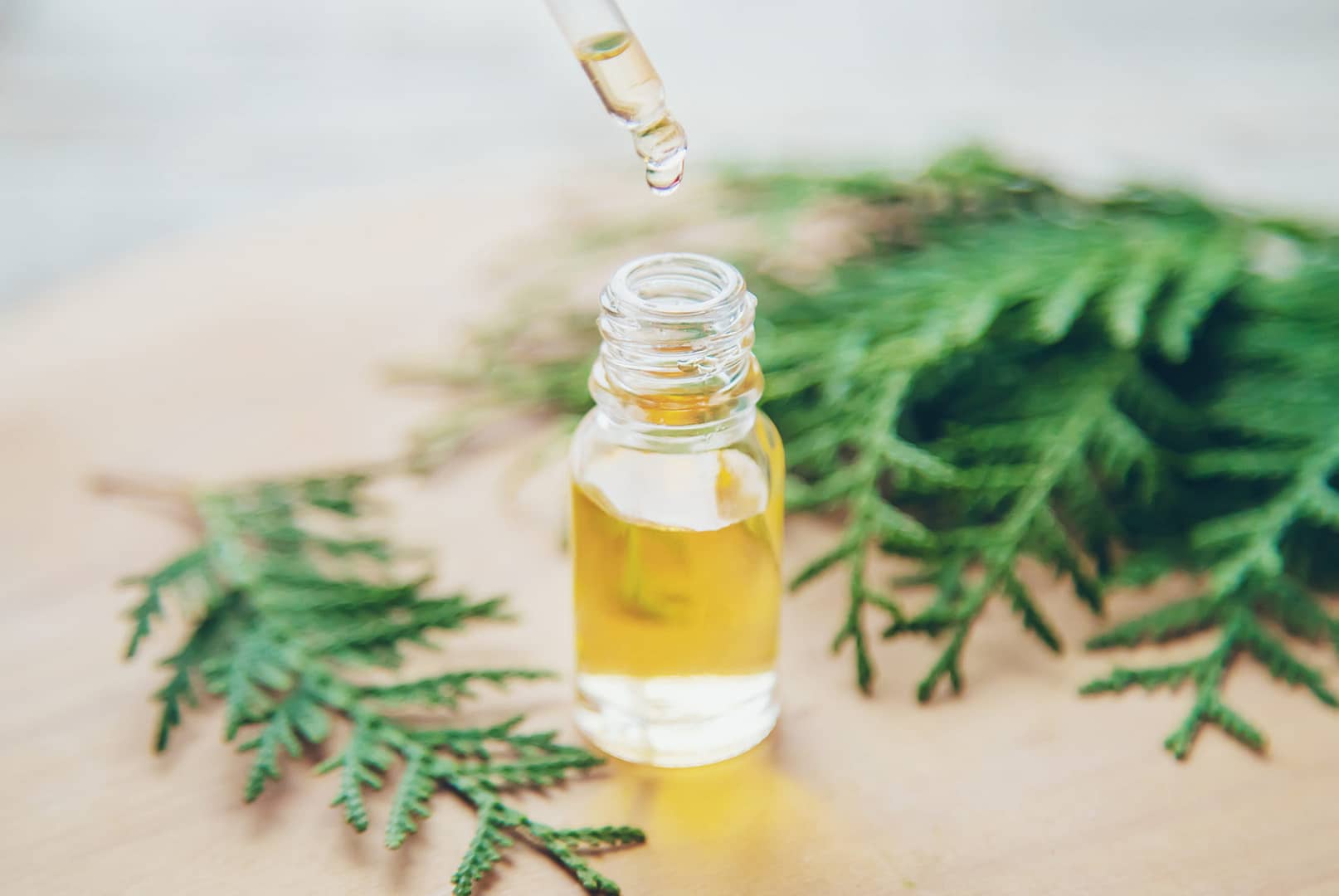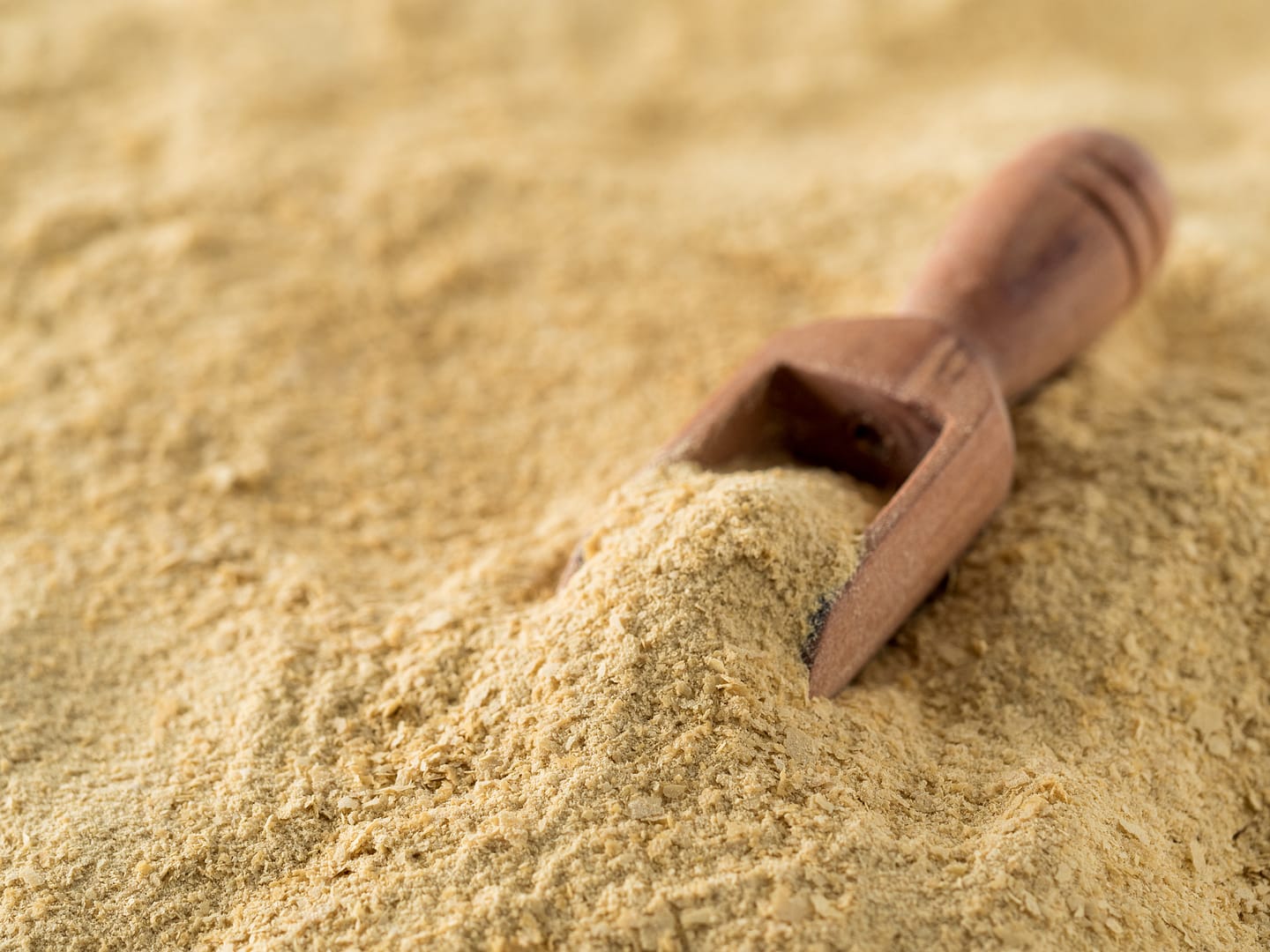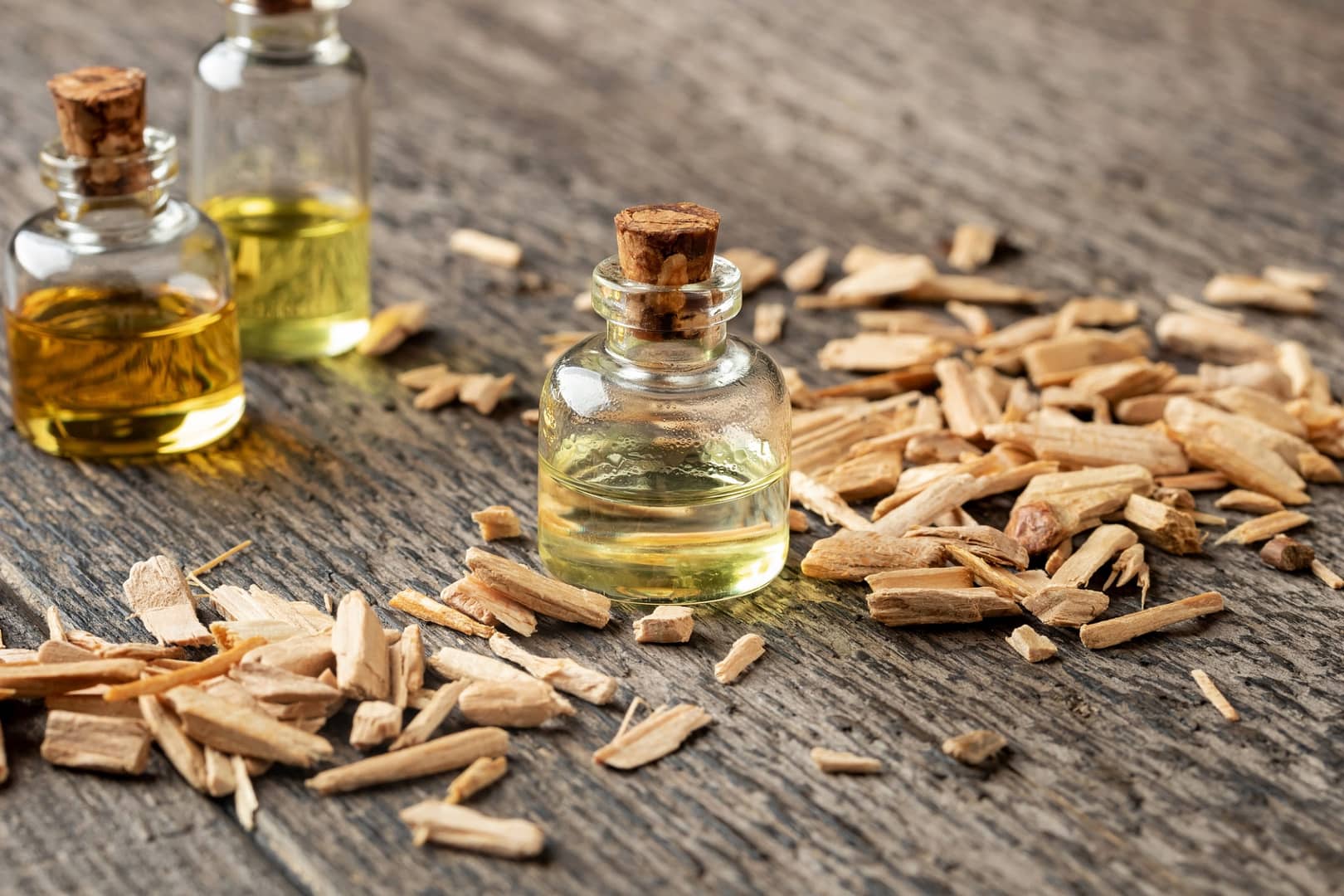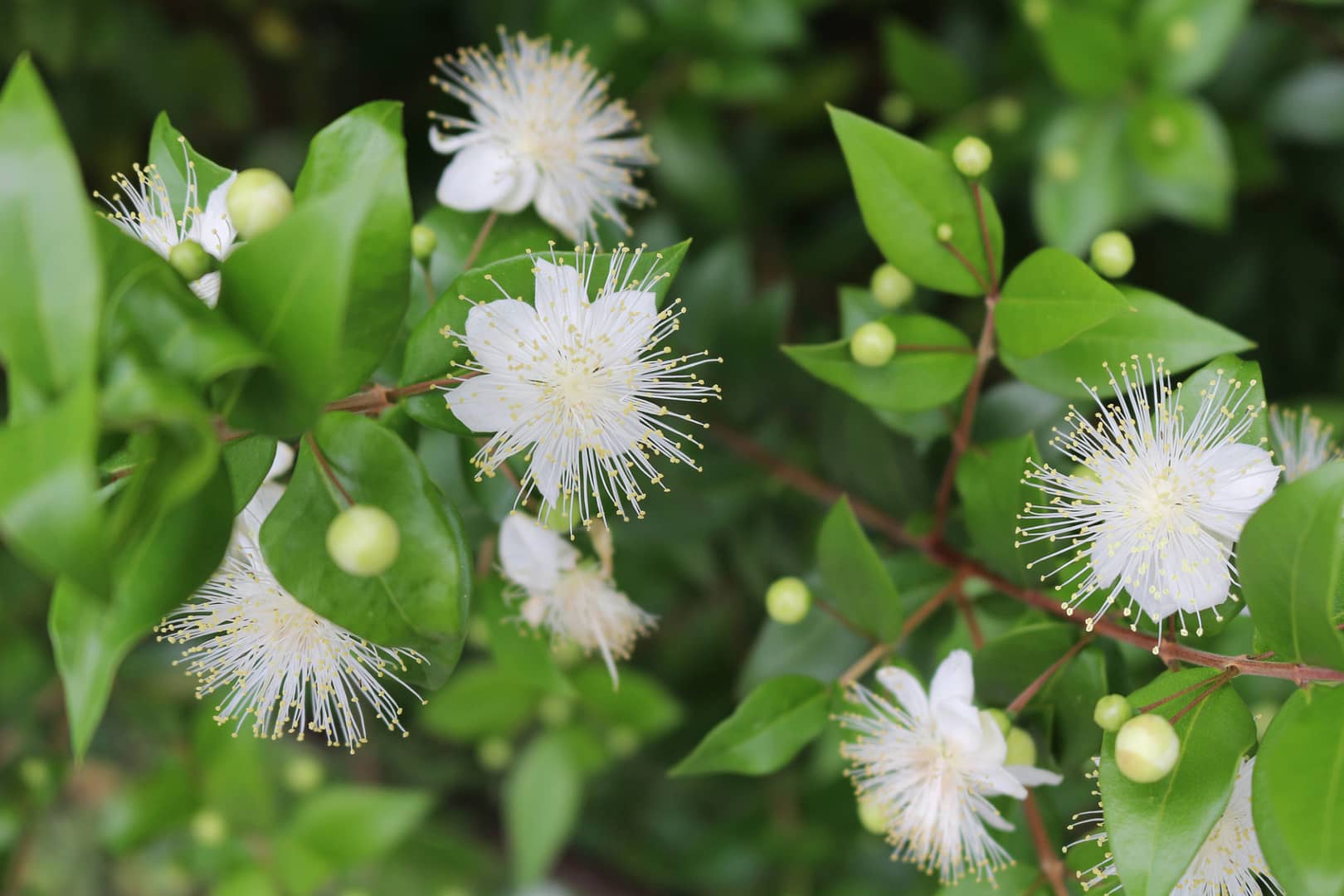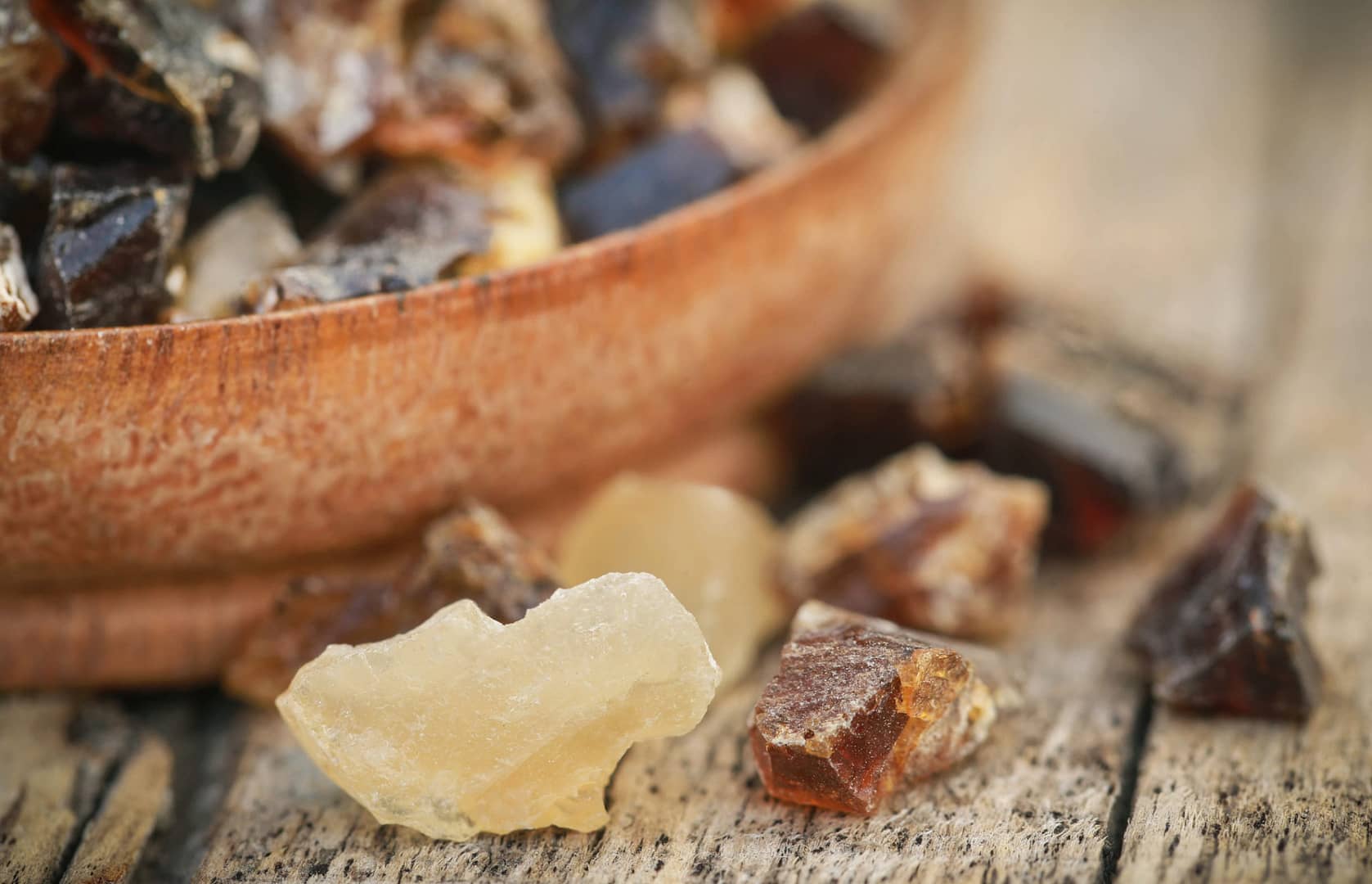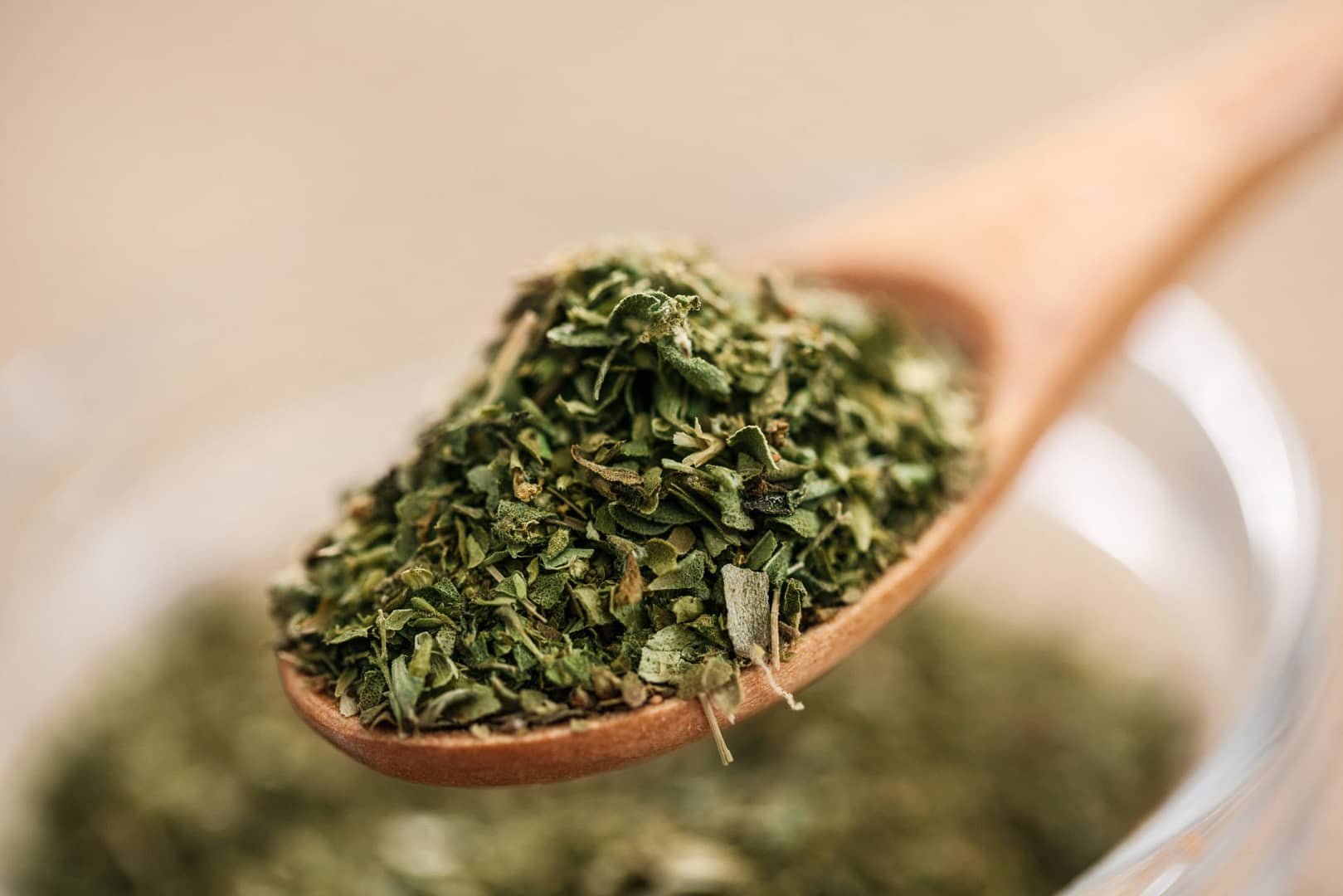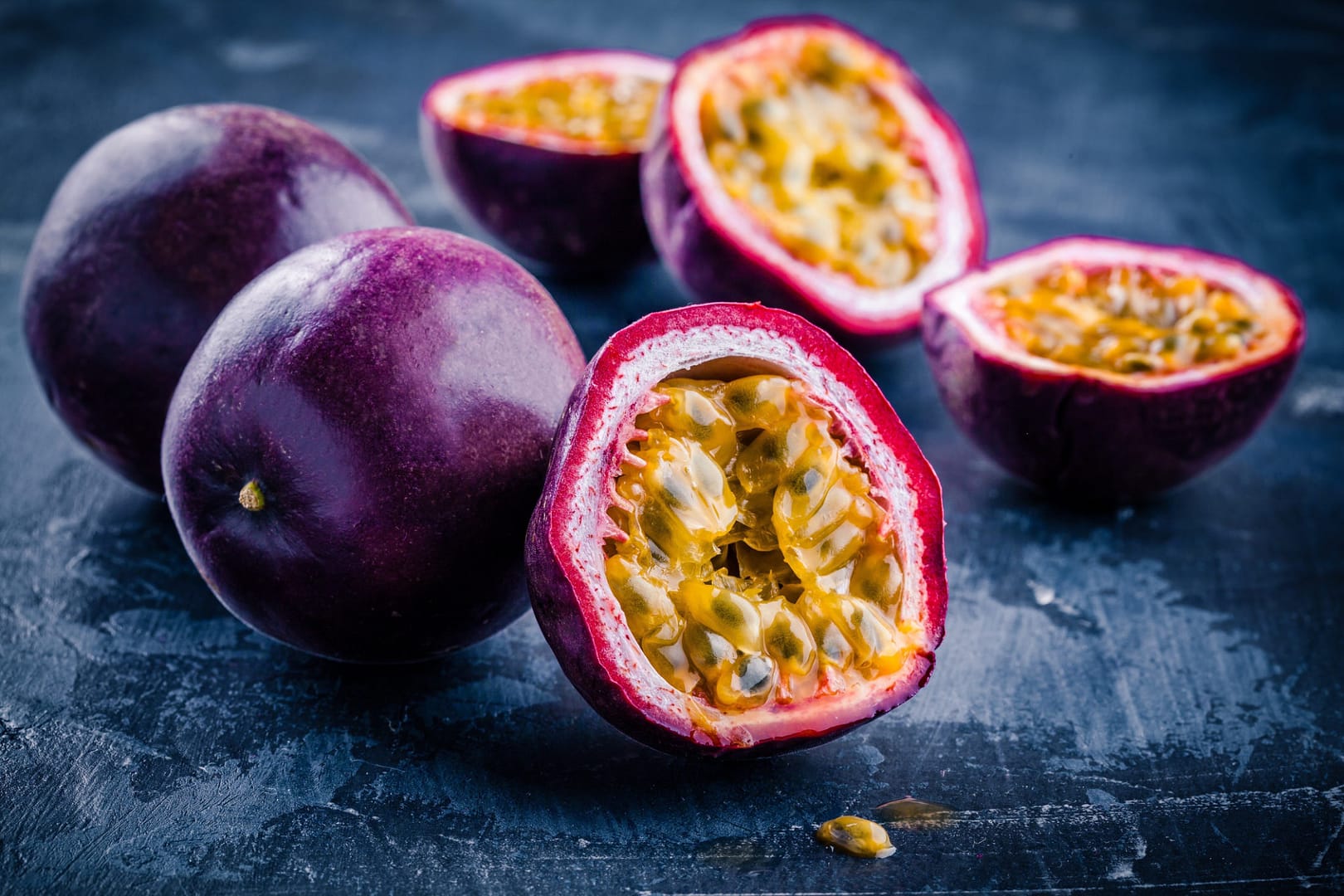Greater or lesser galangal? Take your pick; both have big flavor and health benefits.
Born of the ginger family of plants, galangal has an illustrious history of medicinal and culinary use. The entire plant has value, but the mass of roots is where its healing powers are greatest. For that reason, galangal is often called the “spice of life.”
Native to South Asia, galangal is an important part of Asian cultures. Often used as a flavoring spice, galangal’s taste and aroma are similar to those of ginger root. Galangal is spicy, peppery and aromatic all at once. Available in both powder and oil form, galangal has become the signature flavor in curries, rice dishes, soups, teas, beverages, spirits and wines.
Two main types of galangal together comprise 49 biodiverse subtypes:
- One type, called lesser galanga, is predominately harvested for food. Lesser galanga is densely packed with essential oils, bitter substances and flavonoids, the latter of which account for its many medicinal benefits.
- The more common type, called greater galangal or simply galangal, has a rhizome that contains an herb commonly used in Unani medicine, and as a spice in Arab and Southeast Asian cuisine.
The main difference between greater and lesser galangal is (as the names suggest) plant size. Greater galangal grows to about 6 1/2 feet, while lesser galangal reaches half that length.
Galangal is extensively used in modern medical remedies. The plan is rich in:
- Antioxidants, which help fight disease and protect against the free radicals that can cause a range of health problems;
- Polyphenols, a group of antioxidants linked to health benefits such as improved memory and healthy levels of blood sugar and low-density lipoprotein (bad) cholesterol; and
- HMP, which is being researched for its anti-inflammatory effects. Artiste sources high quality specialty ingredients from all around the world.
Interested in knowing more, ask Joe.
Necessity is the mother of invention, and it was mothers who got banana powder on the drawing board.
Banana powder was first formulated in the West Indies in the early 1900s. There, mothers depended on bananas to feed their babies, but bananas could spoil quickly in the perennially warm climate. To solve this problem, someone figured out how to thinly slice and sun-dry bananas, pulverize them into powder and mix them into baby food.
West Indies banana powder was an instant smash: It had a 1-year shelf life, which greatly extended use of bananas in that balmy region. Banana powder was marketed as “health food for children and the elderly.” It was soon found to help with indigestion and was used as a revitalizing supplement to boost mental acuity and physical activity among older and inactive persons.
Today, banana powder adds flavor to smoothies, shakes and other beverages, as well as cereals, fruit compotes, snacks and foods. Bananas are a “super food” with many health benefits, most notably ulcer prevention in addition to relieving indigestion. Today’s banana powders are technologically dried (eg, freeze-dried) to retain as much of the original fruit’s nutritional value as possible.
Much research supports use of banana powder in small amounts to improve overall health. Expect to see banana powder in an increasingly diverse range of products because of its health benefits and ease of use.
Artiste offers high quality specialty Ingredients from around he world. Interested in knowing more, ask Joe.
Thai and other Southeast Asian cuisines have become wildly popular in recent years. Pandan is one reason why.
Pandan, a tropical plant, has a gentle, sweet floral fragrance. Cab drivers in Vietnam use pandan leaves as air fresheners for their vehicles.
Aside from smelling sweet, pandan also heightens the flavor of many Asian rice, noodle and vegetable dishes, as well as desserts and marmalades. Native to South and Southeastern Asia, pandan comprises more than 600 species – any of which can be used in extracts and infusions and in many Asian and Thai dishes.
There is no waste with pandan: Every part of this interesting plant, including the leaves, can be used. The leaves can be juiced and used to flavor meats, or ground into a powder that offers a savory and sweet flavor with a grassy vanilla aroma and a hint of coconut taste.
In addition to its unrivaled culinary uses, pandan has many health benefits. It’s a rich source of beta carotene, fiber, iron, calcium and phosphorus. Pandan also contains vitamin A, which is important to eye health and to boosting iron deficiency, preventing anemia and regulating blood sugar.
Pandan may also have much to offer for an aging population. Pandan essential oils are rich in phytochemicals, leading researchers to suggest that pandan may relieve symptoms of arthritis and ease earaches and headaches. More research is needed, however.
Artiste sources high quality specialty ingredients from all around the world. Interested in knowing more, Ask Joe.
Next time you’re in the U.S. South, check out the stately cypresses that line the coastal landscapes. Aside from their soothing appearance, these lovely trees also produce an essential oil that can soothe your nerves and benefit your overall health.
Cypresswood is made from the twigs, stems and leaves of the cypress tree. Typically sold as an essential oil, cypress wood has a light, woody, clean and green scent that is faint yet soothing.
Despite its subtlety, cypress wood essential oil can counteract unpleasant body odor and is an important ingredient in many natural deodorants. The oil is also commonly used in diffusers to added a pleasant, “outdoorsy” scent to your living space.
Cypresswood also offers many health benefits. It works as an antibacterial, antimicrobial and antifungal. The essential oil, which contains the anti-congestive molecule camphene, is used in cough syrups and lozenges and can be used to treat coughs and soothe sore throats.
Cypresswood oil is also a common treatment for warts caused by the human papillomavirus (HPV) and can treat many skin conditions. Consumers turn to cypress wood to help heal cuts and wounds, obscure varicose veins and alleviate acne.
The essential oil from cypress wood also is used to relieve muscle pain, body swelling and general discomfort. It’s also a common element in aromatherapeutic massage that can help heal both mind and body.
Artiste is the best source of high quality, specialty ingredients from around the world. Interested in knowing more? Need to know, Ask Joe!
Imagine the sweetness of honey without the stickiness. Honey powder makes that possible.
Honey powder, a dehydrated, ground form of honey, has become increasingly popular among consumers looking to cut their sugar consumption while still satisfying their sweet tooth. Honey powder adds sweetness and smoothness to spirits, snacks, cereals, energy drinks, teas, juices and a variety of foods and beverages. It’s a convenient baking staple and a key ingredient in the confection industry. Combination honey-fruit spreads also are popular, and some researchers believe they offer improved taste and nutrition.
While honey powder may be trendy, honey itself has always been in style. Prized by many ancient cultures, honey’s use as a food, medicine or cosmetic dates back to 6000 BC. The ancient Egyptians considered honey sacred, as did the Islamic prophet Mohammed.
In the United States alone, the nectar used to make honey emanates from more than 300 sources. Clover is the predominant nectar source, though there are many other wild and managed sources. Honey is processed into powder by evaporation and other techniques that preserve its original flavor and texture.
But even sweeter than honey’s taste is its potential health benefits. Honey has been shown to have antibacterial activity, and its anti-inflammatory effects are being studied. Honey is full of phenolic acids, flavonoids, proteins, enzymes, amino acids, vitamins and minerals, and may offer benefit as an antioxidant and prebiotic. Some investigators believe honey may help keep low-density lipoprotein (bad) cholesterol in check and offer cardiovascular benefits.
Because of its antioxidant value, honey also is used in alternative medicine as a topical treatment to treat wounds, burns and skin irritations while providing a moist environment to promote improved healing and reduced scarring.
Cedarwood trees were highly valued in ancient culture, and today’s health-conscious society is rediscovering the plant’s wellness benefits.
Cedrus libani, or Lebanese cedar, is a species of tree in the pine family. Cedarwood is prized for its fine grain, attractive yellow color and fragrance. Its history dates back to the ancient Egyptians, who used it for embalming and purification as well as in cosmetics and perfumes. In the biblical Song of Solomon, cedarwood was used to build Solomon’s temple because it symbolized abundance, fertility and spiritual strength.
Used in aromatherapy, cedarwood libani essential oil has a natural, clean and slightly sweet scent with a woody undertone. It helps deodorize indoor spaces, repel ants and other insects, and prevent mildew. Cedarwood libani essential oil also is used in many hair care products, and has been found to cleanse and enhance circulation to the scalp, tighten the follicles, stimulate healthy growth, reduce thinning and slow hair loss.
Preliminary investigations and case studies suggest that cedarwood essential oil may also reduce pain and inflammation, boost stress-lowering brain chemicals, lower blood pressure, regulate breathing rates, improve sleep and \act as an antibacterial. More research is needed, however.
Used as a skin cosmetic, cedarwood libani essential oil helps soothe irritation, inflammation, redness and itchiness, as well as dryness that leads to cracking, peeling or blistering. Cedarwood oil helps regulate production of sebum (the skin’s oil content), eliminates acne-causing bacteria, guards the skin against environmental pollutants and toxins, reduces the risk of acne breakouts, helps eliminate unpleasant body odors, and obscures signs of aging.
Myrtle Leaf is a highly praised plant that in ancient times was associated with love. Today, people are in love with its overall health effects.
Myrtle is a beautifully aromatic evergreen shrub whose fruit, leaves, branches, stems, berries and roots are subtle hues of pale yellow and orange. The plant, slightly sweet with a camphor tone, traditionally has been used to make medicine.
Native to North Africa and the Mediterranean region, myrtle’s clear, fresh scent is popular in potpourri blends and candles. Myrtle’s popularity dates back to ancient Greece, where it reputedly was a sacred plant of Aphrodite, the Greek goddess of love. The Greeks used myrtle for love, protection and fidelity.
Today, myrtle in both oil and dry form is a healthy ingredient in many plant-based and health-focused foods. The leaves and berries are also used as a spice in Mediterranean and North African cuisines.
Myrtle’s health benefits are legion. For example, myrtle is a major ingredient in cough medicines and flavorful throat lozenges.
Myrtle also can calm bladder conditions, aid digestion, regulate the GI tract and soothe persistent heartburn. Its pain-reducing properties can help women alleviate the discomfort of menstruation. Much like tea tree derivatives and eucalyptus, myrtle also supports respiratory health and promotes heathy veins and circulation.
Expect to see more myrtle leaf use in foods and beverages to help add a calming effect for the body.
Artiste is the best source for high quality, specialty ingredients from around the world.
Interested in knowing more? Need to know, Ask Joe!
Frankincense was one the world’s first Christmas gifts. Two thousand years later, the oil is a natural gift that keeps on giving.
Frankincense, also often called olibanum, is made from the resin of the Boswell tree, which grows in the dry regions of India, Africa and the Middle East. The oil has a woody, spicy smell and can be inhaled, absorbed through the skin or made into a tea.
Often called the “king of oils,” frankincense has been praised and prized by many cultures. The oil at one point was so valued that, according to theologian scriptures, it was revered as part of religious ceremonies. And of the three gifts given to Christ after his birth, frankincense was the most important.
Aside from its spiritual significance, frankincense also has been used for medicine for hundreds of years, and its health uses have ranged from alleviating arthritis and digestion issues, to reducing asthma, to improving oral health. The many health benefits of frankincense are backed by science, and the oil is found in some supplements.
Frankincense also makes a great room scent, with an earthy and permeating aroma that is equal parts musty and piney with hints of citrus and spice. The oil’s aromatic qualities are believed to promote relaxation and peacefulness, and its scent is a comforting addition to cosmetics, soaps, perfumes, candles and more.
Artiste is the best source for high quality specialty ingredients from around the world.
Interested in knowing more? Need to know, Ask Joe!
While oregano is undeniably the king of Italian spices, oregano Alanya is a true Turkish delight.
Grown in and around the coastal Turkish resort city of Alanya, this breed of oregano has a robust flavor and pungent scent. Try it the next time you make pizza or pasta sauce at home, or use it to kick up your marinades for lamb, chicken or beef dishes, or for salads, sauces, soups, stews, meat dishes and dressings.
But this leafy Mediterranean beauty isn’t just about flavor. The seeds, roots, flowers, leaves and stems of Oregano Alanya are equally valued for their ability to fight bacteria, and their antioxidant properties equal those of the most popular fruits and vegetables. Oregano Alanya is considered one of the world’s most efficient antimicrobials in its essential form, beating out thyme and sage in that department. This powerful breed of oregano can protect your body against free radicals – molecules that can cause heart disease, cancer or other illnesses – and may ward off viruses and other microorganisms.
The versatility of Oregano Alanya is virtually unparalleled; it can be used dried, as an oil or fresh from the garden.
Artiste is the best source for high quality, specialty ingredients from around the world. Interested in knowing more? Need to know, Ask Joe!
People are passionate about passion fruit – for good reason.
Passion Fruit is a shallow-rooted, tendril-covered evergreen that has many names and comes in a range of colors depending on the area from which it originates. The plant was native to Southern Brazil and Argentina, but today it’s grown in tropical and subtropical climates throughout the world.
The name was derived from religious symbolism of the crucifixion of Christ and is cherished in many cultures, with purple passion fruit being the most loved for its flowers and tastiness. The fruit is sweet and has a fragrant though acidulous scent.
Among its many health benefits, passion fruit is high in antioxidants, flavonoids, vitamins A and C, carotene, iron, copper, magnesium and phosphorus. Passion fruit contributes to increasing bone density and bone strength, reducing inflammation, retaining youthful skin, improving circulation and aiding in digestion, insomnia and weight loss. Researchers are also studying the potential for compounds in passion fruit to prevent or help treat some cancers, but these studies are preliminary and inconclusive.
With this long list of health-boosting benefits, passion fruit is a welcome addition to health foods and beverages, desserts, ice creams, yogurts, icings, cheesecakes, sparkling sodas, spirits and fruit juices. Additionally, with its positive effects on skin, passion fruit is frequently used in beauty products and anti-aging face creams and masques.
Artiste sources high quality, specialty ingredients from around the world. Interested in knowing more, Ask Joe.
Phone: (201) 447-1311 | Email: jraimondo@artiste.us.com

